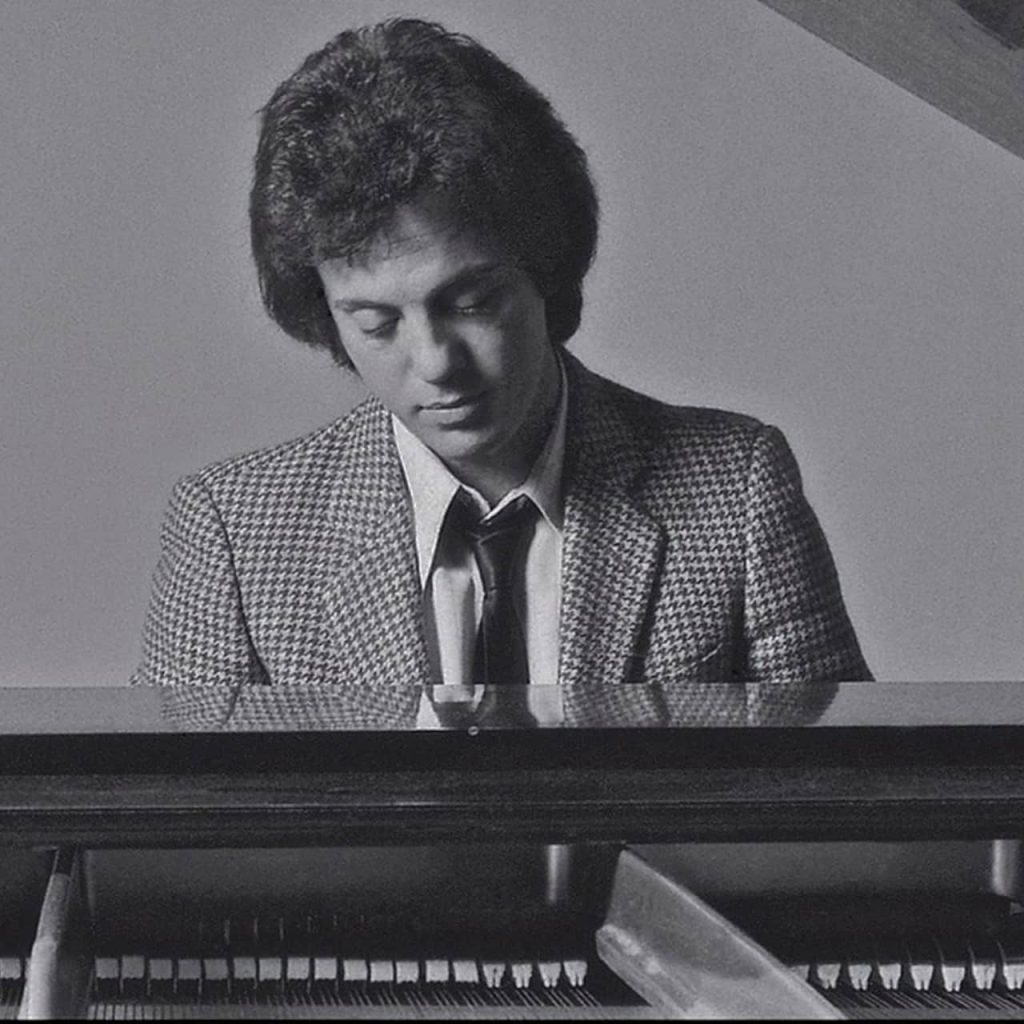
A timeless ballad of dreams, resilience, and the solace found in music’s embrace.
“Piano Man,” released in 1973 from the album of the same name, isn’t just a song; it’s a cultural touchstone, a poignant snapshot of life in a dimly lit bar, and a testament to the power of music to connect us all. It peaked at number 25 on the Billboard Hot 100, marking a significant early success for Billy Joel and setting the stage for his illustrious career.
The story behind “Piano Man” is deeply personal. In the early 1970s, after a contractual dispute with his former record label, Joel found himself in Los Angeles, struggling financially and working as a piano player in a local bar called the Executive Room. This experience provided the rich tapestry of characters and situations that populate the song. The patrons he encountered—the bartender, the real estate novelist, the businessman—became the inspiration for the vivid portraits painted in the lyrics. These weren’t just random barflies; they were individuals with their own stories, dreams, and disappointments, seeking refuge and connection in the shared space of the bar and the music it offered.
The song unfolds like a miniature play, each verse introducing a new character, each with their own story of longing and quiet desperation. There’s the “real estate novelist” who’s “talking with Davy, who’s still in the Navy, and probably will be for life.” This line encapsulates a sense of stagnation, of lives on hold, a theme that resonates throughout the song. Then there’s the businessman, “slowly getting stoned,” hoping to forget his troubles, if only for a few hours.
The chorus, with its sing-along melody and familiar refrain, is a unifying anthem. “Sing us a song, you’re the piano man, sing us a song tonight.” It’s a plea for connection, for escape, for a moment of shared experience in a world that often feels isolating. The piano, played with a saloon-style honky-tonk feel, becomes the central character, a conduit for emotions that are difficult to express in words. The harmonica adds a touch of melancholy, further enhancing the song’s nostalgic atmosphere.
“Piano Man” isn’t just about the characters in the bar; it’s about the universal human experience of seeking solace and connection. It captures the bittersweet reality of chasing dreams, the compromises we make, and the small moments of joy and camaraderie that make life bearable. It’s a song about the power of music to transcend our individual struggles and create a shared sense of belonging.
The song’s enduring popularity lies in its authenticity and its ability to evoke a powerful sense of nostalgia. It takes us back to a simpler time, a time when gathering around a piano in a dimly lit bar was a way to connect with others and find solace in the music. It’s a song that speaks to the heart, a song that reminds us that we’re all in this together, and a song that continues to resonate with audiences of all ages, especially those who have lived long enough to appreciate its depth and emotional resonance. It is a song that has become synonymous with Billy Joel himself, a timeless classic that continues to be played and cherished decades after its release. It is a testament to the power of music to transcend time and connect us to our shared humanity. The album Piano Man solidified Billy Joel’s place in music history.